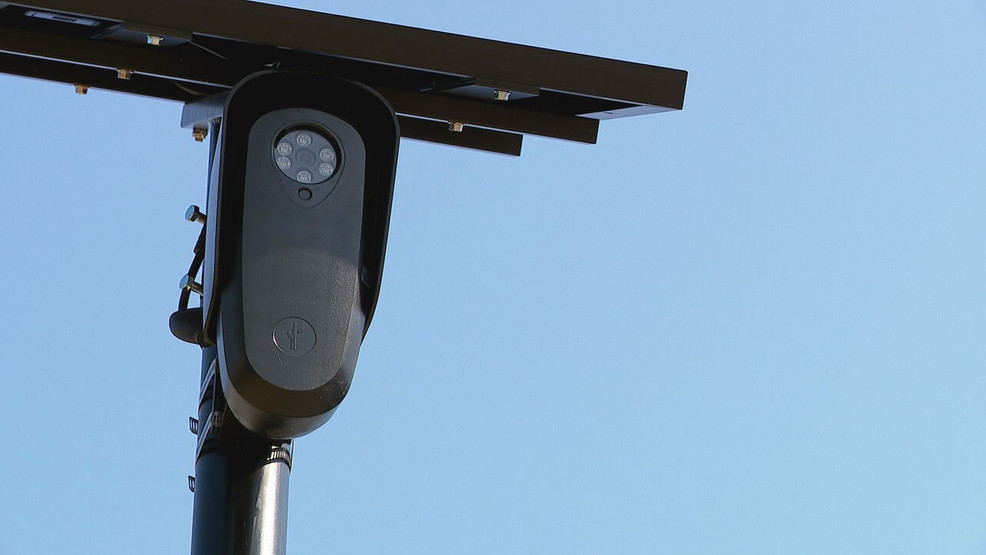A North Texas sheriff’s office is under fire for tapping into a national license plate reader system to search for a woman accused of self-managing an abortion, raising serious questions about how surveillance technology is used in Texas and beyond.
As first reported by the independent outlet 404 Media, the Johnson County Sheriff’s Office, located just south of Fort Worth, accessed more than 83,000 license plate readers nationwide while trying to track the woman down.
The sheriff told 404 Media that the woman’s family reached out fearing for her safety, so the search was to help find a missing person, not the suspect in a crime.
But police have to list a reason for each search, and in this case, a deputy used the word ‘abortion’ in his search description.
The search included states where abortion is legal and protected, like Illinois.
Illinois Secretary of State Alexi Giannoulias says the Texas department violated a law that bans the use of Illinois license plate reader data to track or penalize individuals seeking abortion care or criminalize a person’s immigration status.
“License plate readers can serve as an important tool for law enforcement, but these cameras must be regulated so they aren’t abused for surveillance, tracking the data of innocent people, or criminalizing lawful behavior,” Giannoulias said.
The woman at the center of these searches was eventually found safe in Texas.
According to Flock Safety, the company that produces the license plate readers, no charges were ever filed against the woman, and she was never under criminal investigation by Johnson County.
Illinois has now requested that several out-of-state law enforcement agencies be blocked from accessing its license plate reader system and launched a statewide audit.
Their state law, which took effect in 2024, says that law enforcement agencies must attest that license plate reader data will not be used to prosecute or enforce another state’s laws pertaining to abortion care or immigration status.
State analysis showed that it isn’t always being followed, according to Giannoulias.
One Chicago suburb reported 262 immigration-related LPR searches in just the first few months of 2025.
Flock conducted an internal audit of agencies that had access to Illinois data. If any agency agreed to comply with the law but still conducted multiple searches with impermissible terms, its access to the data was revoked.
“Since we initiated the audit in May, 47 agencies have been removed from access to Illinois data,” a Flock spokesperson told us. “If a search involving Illinois camera data includes terms that indicate an impermissible purpose under Illinois law, the Illinois data will automatically be excluded.”
Criminologist Alex del Carmen says this conflict over data related to abortion may not be the last.
“The problem here is that, if they went for an abortion-related case, they will go for absolutely anything,” said criminologist Alex del Carmen. “And that is what worries me, right? What is it going to be tomorrow? “
It gets complicated because of state-by-state policy on controversial issues and laws governing license plate readers.
“This is clearly a case where technology is ahead of the law, and every law in every state is different,” he added.
Flock Safety says it has taken sweeping action in response to the Texas-led search:
A new search filtering tool prevents access to Illinois LPR data for reasons related to abortion or immigration.AI-powered auditing alerts and required case numbers will be rolled out nationwide by the end of the year.An option for agencies to elect to require a case number for any searches conducted in the system
The law still allows police to use ALPR technology for investigating felonies, carjackings, vehicle thefts, and missing person alerts, Illinois leaders confirm.
“Flock Safety strongly supports laws and policies that ensure transparency, oversight, and the appropriate use of LPR technology,” the company said in a public statement. “We are committed to helping our customers comply with those rules.”
In Texas, no such compliance laws currently exist, meaning departments can still conduct wide-ranging LPR searches across the country with limited oversight.
“They need to take action, because it’s going to be too late if they don’t,” del Carmen warned lawmakers and police departments.
A bill that would have limited how police can use license plate data in Texas stalled early in the legislative process this year.
Flock Safety told us they support legislation that reinforces statewide audits, compliance legislation, and enhanced privacy protections.
The I-Team reached out to the Johnson County Sheriff’s Office, but did not receive additional comment.
